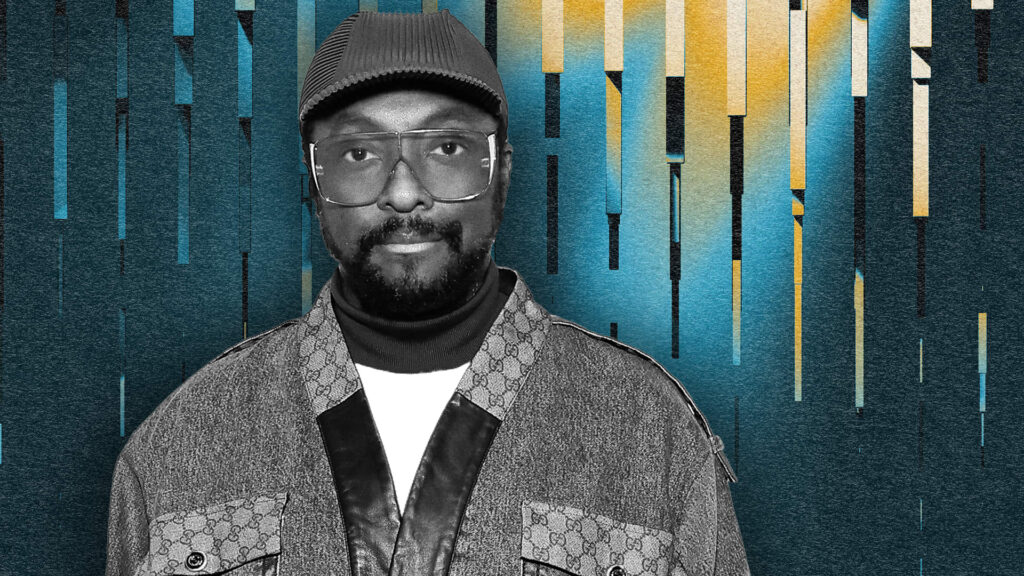Radio influenced Will.i.am’s career. Now, the artist and entrepreneur is looking to reinvent the dying medium with Radio.fyi, a new interactive AI model.
Will discusses his philosophy on AI development, the emergence of “intelligent media,” and why he feels Radio.fyi will be an important part of radio’s future.
This is an abridged version of a Rapid Response interview hosted by Bob Safian, the former editor-in-chief of Fast Company. Rapid Response, from the same team that created the Masters of Scale podcast, provides candid interviews with today’s top business executives as they navigate real-time difficulties. Subscribe to Rapid Response wherever you get your podcasts to avoid missing an episode.
You’ve been a guest on Masters of Scale, sharing career lessons. For the time being, I’d want to ask you how you’re coping in this strange world we live in. You’ve been touring with The Black Eyed Peas, but you also recently established Radio.fyi, which aims to redefine radio as a media experience. Could you please clarify what Radio.fyi is?
READ MORE: WILL.I.AM Announces QD.PI, A Radio Show With AI Co-Host
Radio.fyi is a text message to the station. So we understand what text-to-action is. In this situation, the activity in our architecture is represented by the radio format. So I could ask any inquiry regarding whatever topic was presented to me. Where, you know, this AI host is speaking over this mood music, then throwing to song, then grabbing information as it unfolds on the internet, and then presenting it back in the form of radio, then throwing to song, and then asking you along the way if you have any questions about anything that is presented, and then answering those questions.

It combines AI assistant and listening experience. It’s like a combination of information and enjoyment.
It is what we refer to as the dawn of intelligent media, in which the media is interactive and engaging rather than passively leaning back. It’s a media experience that requires leaning in, digging in, and diving deep.
So I don’t just need to read it? I suppose I can talk to the DJ about what’s there.
READ MORE: Will.i.am And Mercedes-Benz Present “Sound Drive”: A Real-Time Musical Reaction To Acceleration, Steering, And Other Events In The Car
Exactly. Our framework has enabled humanlike banter. If you were on a radio station and could call in and speak with a human, you could also communicate with the information itself. And it’s really deep to be able to say, “Yo, what do you mean you can communicate with information? That sounds really ridiculous.” Because of the technology that we have today, you could practically converse to silicone freaking lithium.
So you have a collection that you’ve curated from various sources, and you’re paying for the rights to it rather than using a separate streaming service?
Yeah. We aren’t a streaming service like Spotify. It is a radio-like device. You cannot fast-forward or rewind. The most you can do is pause. It does not stream. It’s not a la carte. It’s not on demand in that way. It functions similarly to radio.
And, because I adore radio, I want to create and contribute to the industry that has transformed my life. Radio altered my life. Radio impacted Lionel Richie’s life. Radio impacted Stevie Wonder’s life. So we’re innovating in an area that really needs it: our music community, the artists who create it. “Radio, radio, radio.”
You were the first to tell me about Udio, the wonderful AI-based music generator in which you have invested. You ask it to produce an original song for you. It’s great. The record labels are suing for infringement. How do you think about squaring this amazing technology for creative work with the kind of creative activity that underpins, trains it? How do you think those things will fit?
Assuming Spotify had no subscribers, the record companies would not have sued them. So, they sued them because there was growth. They sued Udio because it has grown. So it’s a positive thing because it means they’ll be able to reach an agreement more quickly with artists and how they trained their stuff.
It will be resolved, but we are now on tricky ground. For example, supposing Prince was still alive and you approached him and asked, “Hey, Prince, who’s your inspiration?” Prince is undoubtedly going to include James Brown, Sly and the Family Stone, and Jimi Hendrix. If you asked Michael Jackson, “Hey, Mike, who’s your inspiration?” Michael Jackson is going to mention James Brown, Fred Astaire, Sammy Davis Jr., and Gene Kelly. They both have something in common: James Brown.
And it’s apparent that James Brown is their biggest inspiration. You can see it. So, in this scenario, inspiration comes from one person to another. Machines refer to it as data set and training, which is what you trained on. If you asked an artist, you would say, “Yo, who’s your inspiration?” It’s the same stuff because we have a neural network, which was derived from our neural network. So now we’re on shaky ground because, last I checked, Prince did not pay James Brown royalties because he was inspired by him. For example, his paths were part of his data collection. So that’s where it gets hazy, where we are today.
What is the most common misconception concerning artificial intelligence?
This is the worst it will ever be, because things only get better from here. And that is optimistic in every sense of the word: ethically, morally, in economic practice, legally, in terms of recompense. This is the worst it will ever be. Let us remain positive that those in power do not lead with greed. This is the worst it will ever be. That’s it: let’s hope that the powers that be aren’t motivated by greed. This is the worst it will ever be.
You have numerous occupations in music, technology, and television, and I’m wondering how you handle it all. Like Jack Dorsey was CEO of both Twitter and Square at the same time, and he had separate days for each, right? So, how do you prioritize all of the different aspects of your life?
It actually depends on the teams you create. The goal is to create a Warriors-type club. You want Stephen Curry, but you also need Draymond Green. You require the squad. So the same is true for FYI, where my squad lets me to go out and look for additional partners who match what we’re trying to do.

When I’m working with Mercedes, she has to know: “We thought Will was simply a musician, but he’s more than that. He’s excellent in our workshops. “He’s always got good ideas.” And so, when I get there, I can’t shower them with ideas. I need to be quite strategic and aim it. You could drown someone in “and then, and then, and then, and then!”. You do not want to say ‘and then’, people. So you have to go in there really focused.
I once worked with someone who had a lot of ideas, and I felt like it was my obligation to say, “No, no, no, no, no.” Yes, that is the one I prefer!” Do you do that for yourself, going over your own ideas? You write things down, put them down, and then say, “No, no, no.” Oh, absolutely. Is that the one to strategically push? Or do you rely on the support of others to accomplish this?
You must have a separate sounding board. I have a terrific sounding board outside of FYI because, when it comes to FYI, you can sometimes become lost in your own sauce. What’s more, you’ll need an outside team of trusted truth-tellers, as well as to be your best self.
Radiant TV, offering to elevate your entertainment game! Movies, TV series, exclusive interviews, music, and more—download now on various devices, including iPhones, Androids, smart TVs, Apple TV, Fire Stick, and more.


